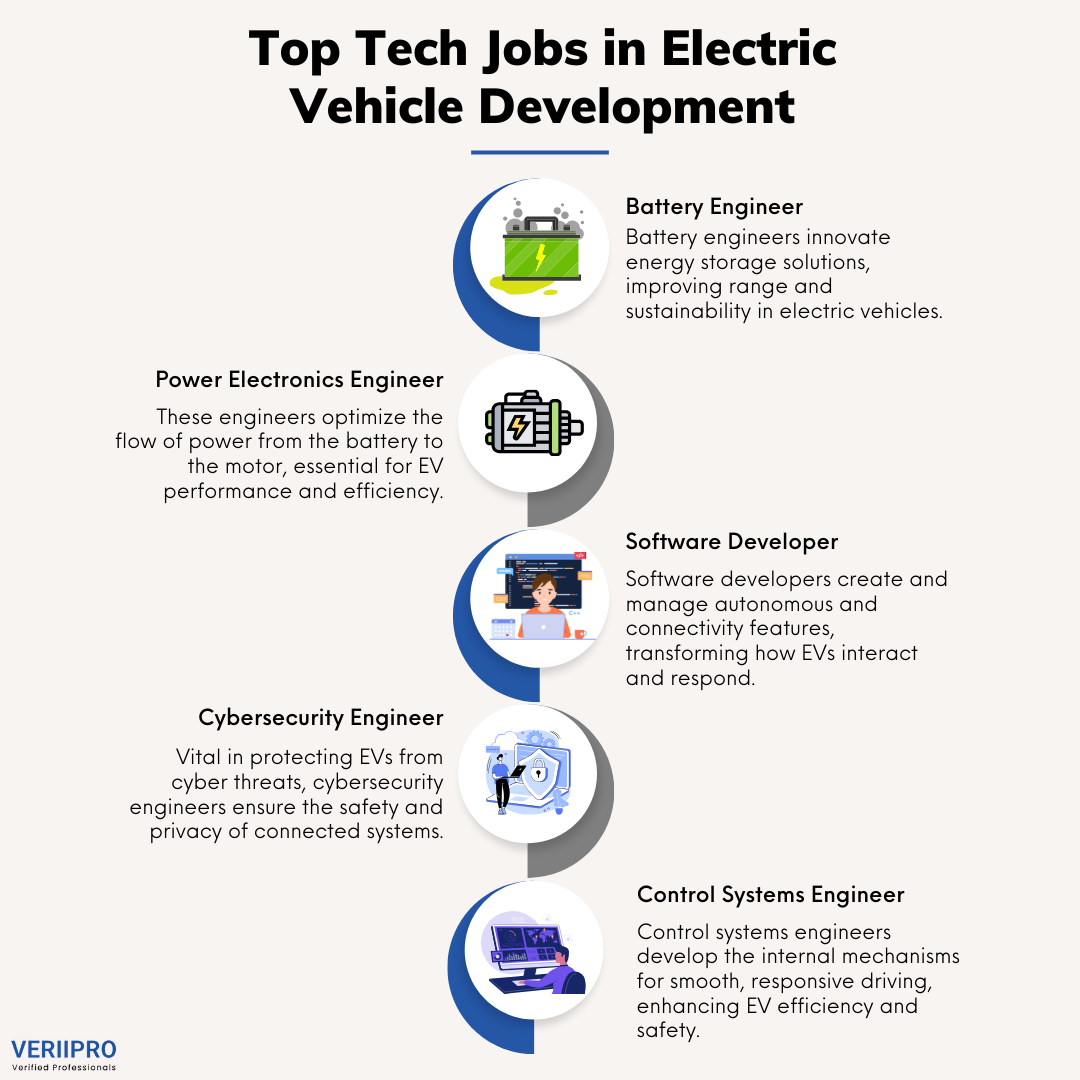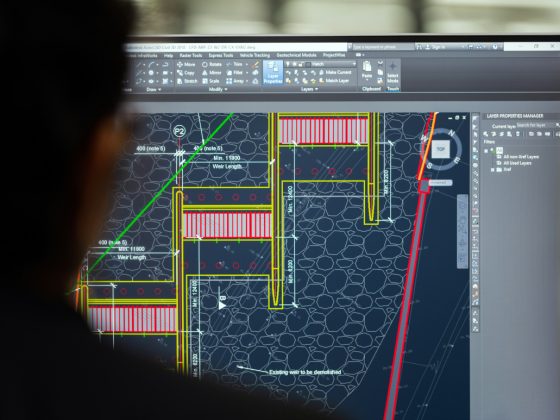Top Tech Jobs in Electric Vehicle Development
Electric vehicles (EVs) are no longer just a vision for the future—they are transforming the present. As the automotive industry shifts towards eco-friendly solutions, there is a growing demand for skilled professionals to drive electric vehicle development. This article explores some of the most sought-after tech roles in EV development, from software engineering to battery innovation, offering insight into each job’s unique contributions to the EV ecosystem. Whether you’re an experienced tech professional or considering a career shift, these roles represent some of the most exciting opportunities in sustainable technology.

Battery Engineer
Battery engineers play a crucial role in EV development, focusing on designing and optimizing the lithium-ion batteries that power these vehicles. Their work ensures that EV batteries are efficient, safe, and long-lasting. This role often requires a background in electrochemistry or materials science, as well as experience in testing and data analysis. As battery technology advances, battery engineers are tasked with researching sustainable materials to reduce environmental impact and improve energy density, resulting in longer vehicle ranges on a single charge.
Power Electronics Engineer
Power electronics engineers are responsible for designing the electronic systems that control EVs’ power flows. Their work focuses on converting and managing electrical power from the battery to the motor, which is vital for efficient vehicle operation. This role demands expertise in semiconductor technology, thermal management, and high-power circuitry. A power electronics engineer’s work significantly affects an EV’s performance, efficiency, and battery lifespan, making them central to the success of electric transportation.
Software Developer for Autonomous and Connected Vehicles
As EVs become smarter and more connected, the need for software developers in this field is growing. These professionals create the software that supports autonomous driving and connectivity features, integrating advanced driver assistance systems (ADAS), machine learning, and sensor data to ensure safe and responsive driving experiences. Skills in Python, C++, and machine learning are often required, alongside experience in the automotive industry. Developers in this role help bring futuristic capabilities to today’s EVs, making self-driving features and real-time connectivity a reality.
Charging Infrastructure Engineer
The growth of electric vehicles depends not only on the cars themselves but also on the infrastructure that supports them. Charging infrastructure engineers design and develop the networks of EV charging stations, ensuring accessibility, reliability, and speed. This role is especially vital as governments and companies work to establish a widespread network of chargers to support EV adoption. Proficiency in electrical engineering and project management is essential, as these engineers must collaborate with various stakeholders to ensure the successful deployment of charging stations.
Thermal Management Engineer
One of the most challenging aspects of EV technology is managing heat. Thermal management engineers design systems to keep the battery and other components at optimal temperatures, thereby preventing overheating and improving overall vehicle efficiency. Their work in heat transfer and fluid dynamics plays a pivotal role in extending the lifespan and performance of EVs. With advanced cooling systems, thermal management engineers make EVs more reliable, especially under high-performance conditions.
Control Systems Engineer
Control systems engineers focus on the internal functions of EVs, designing the systems that control various vehicle functions, including acceleration, braking, and steering. Their role is essential for creating a smooth driving experience and optimizing vehicle performance. This job requires knowledge in electrical engineering, mechanical engineering, and computer programming, particularly with embedded systems. By developing robust control systems, these engineers enhance the efficiency, safety, and responsiveness of EVs on the road.
Vehicle Cybersecurity Engineer
With the rise of connected and autonomous vehicles, cybersecurity has become an essential component of EV development. Vehicle cybersecurity engineers focus on protecting the software and data systems within EVs from potential cyber threats. They ensure that software is secure against hacking attempts and that data privacy is maintained. This position requires expertise in cybersecurity protocols, network security, and automotive software standards. As vehicles become more connected, the role of cybersecurity engineers is becoming increasingly important to prevent malicious attacks on EV systems.
Conclusion: Opportunities Abound in Electric Vehicle Development
Electric vehicles represent the forefront of sustainable technology, and the demand for skilled professionals in this field is booming. Whether you’re interested in software development, battery engineering, or cybersecurity, a career in EV development offers an opportunity to contribute to a cleaner, greener future.
Looking for opportunities in electric vehicle development? VeriiPro is here to help!








